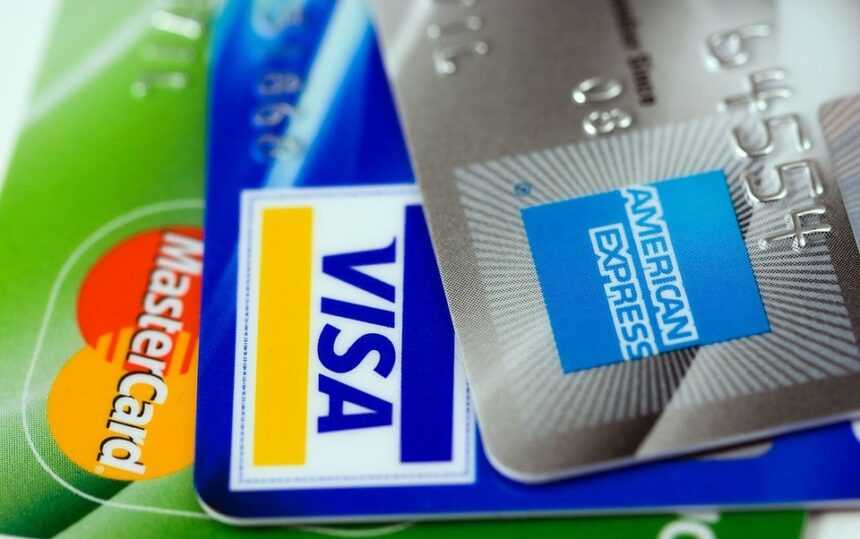Citing “unacceptably excessive charges,” on-line market eBay will cease accepting American Categorical playing cards on Aug. 17, 2024. That is the newest battle in a years-long, multi-pronged battle over interchange charges — the charges that retailers pay card corporations each time a buyer pays with a credit score or debit card.
In the end, I consider eBay’s anger is misguided, and that they’re unfairly singling out American Categorical. For instance, in keeping with considered one of its Securities and Alternate Fee (SEC) filings, Amex’s common interchange payment is 2.28 p.c — simply the slightest bit increased than Visa and Mastercard’s 2.26 p.c. Whereas I suppose 0.02 p.c can add up at scale, this argument isn’t actually about 2 foundation factors.
eBay has an axe to grind, and so they’re wielding it at Amex. The e-tailer companions with Mastercard on the eBay Mastercard, so their ire was unlikely to be despatched in that course. I’m undecided why Visa obtained off straightforward on this one, however they haven’t all the time been so fortunate.
Previous retailer bank card prohibitions
In 2019, Kroger banned Visa playing cards from lots of its shops beneath related circumstances (solely to quietly rescind the ban just a few months later). Kroger additionally has a co-branded bank card take care of Mastercard. These tie-ups normally contain varied types of income sharing and decrease processing charges when the retailer’s personal card is used at its shops.
Moreover, Amazon threatened to cease accepting Visa playing cards in the UK a few years in the past, once more citing excessive processing charges. The businesses reached a last-minute settlement to avert the shutdown. Apparently, Amazon additionally had a UK-based bank card partnership with Mastercard on the time.
Oddly, I can’t consider a retailer ever banning Mastercard, however that’s most likely only a coincidence. Visa, Mastercard, American Categorical and Uncover are all main, respected corporations that cost primarily the identical processing charges. The primary distinction is that American Categorical and Uncover are each card networks and lenders, whereas Visa and Mastercard don’t prolong credit score. As an alternative, they course of credit score and debit card transactions on behalf of banks (also referred to as card issuers): Financial institution of America, Chase, Citibank, Wells Fargo and so forth.
Mr. Durbin goes to Washington
Combating interchange charges has been a central quest for U.S. Senator Dick Durbin throughout his a long time in our nation’s capital. Again in 2010, he tacked the eponymous Durbin Modification onto the landmark Dodd-Frank Act, which capped debit card interchange charges at 21 cents plus 0.05 p.c of every transaction value, with an extra 1 cent per transaction for fraud prevention.
Whereas Durbin and retailers hailed the cost-saving transfer, ultimately, it was retailers who profited. The Federal Reserve Financial institution of Richmond discovered {that a} mere 1 p.c of shops lowered costs after the Durbin Modification took impact. Unintended penalties for customers included diminished entry to free checking accounts, fewer debit card rewards and better ATM and overdraft charges.
For the previous couple of years, Durbin and a number of other colleagues have been making an attempt to advance the Credit score Card Competitors Act. In contrast to the prior debit card laws, this wouldn’t explicitly cap bank card interchange charges. As an alternative, it might require that at the very least two card networks be enabled on every transaction and that retailers might select which one to make use of (and the 2 networks can’t be each Visa and Mastercard, since Durbin is keen on calling them a duopoly that centrally fixes costs).
The key card networks are remarkably related
Whereas unbiased sources such because the Nilson Report confirm that Visa and Mastercard mix for better than 80 p.c market share, the bank card market continues to be very aggressive. American Categorical and Uncover are worthy rivals, and Uncover will truly change into the most important U.S. bank card issuer if its merger with Capital One is accredited by regulators. Additionally, if Amex is such a small potato, why does eBay care a lot about its processing charges?
The reality is, all 4 main card networks cost roughly the identical charges and are accepted in roughly equally excessive numbers all through the nation. And whereas retailers and their allies like to hate interchange charges, these charges haven’t modified a lot lately — at the very least on a proportion foundation. They’ve, nonetheless, attracted outsized consideration as inflation has led to increased costs and money utilization continues to dwindle.
Retailers are lacking the mark
For these causes, all of this smacks of slicing off a retailer’s nostril to spite its face. Shoppers spend a median of $95 per transaction once they pay with a bank card, the San Francisco Fed stories, in contrast with simply $39 per money transaction. Money utilization fell from 31 p.c of funds in 2016 to simply 18 p.c eventually test in 2022.
The Small Enterprise Funds Alliance provides that the typical transaction measurement will increase by 10 to fifteen p.c as soon as a enterprise begins accepting bank cards.
Retailers would clearly like to pay decrease card processing charges, however isn’t there a price to that? If customers find yourself spending much less and/or taking their enterprise elsewhere? Shoppers, by and huge, don’t like utilizing money all that a lot. And there are hidden prices to money acceptance as properly (together with time spent schlepping to and from the financial institution, armored automobile charges, theft, and so forth.).
The Credit score Card Competitors Act
The Retailers Funds Coalition brings the dialogue again to the Credit score Card Competitors Act: “Amex is only a symptom of the underlying drawback,” says Doug Kantor, a member of the Retailers Funds Coalition’s Govt Committee and the final counsel for the Nationwide Affiliation of Comfort Shops.
“Visa and Mastercard every centrally price-fix excessive swipe charges which might be uniformly charged by all banks that challenge playing cards beneath their manufacturers fairly than letting the banks compete for retailers’ enterprise. That cartel pricing by the nation’s two largest card networks units a baseline of excessive swipe charges. The answer is to go the Credit score Card Competitors Act to carry competitors to swipe charges and repair this damaged marketplace for all card manufacturers.”
Sadly, the Durbin Modification confirmed us that decrease card processing charges result in diminished rewards, since interchange charges are the dominant supply of rewards program funding. Decrease costs aren’t more likely to ensue, both. However we would add diminished knowledge safety to the listing, since passage might incentivize retailers to decide on cheaper, lower-quality card networks that aren’t prepared for prime time. The Credit score Card Competitors Act sounds pleasant, however I worry it’s more likely to be a wolf in sheep’s clothes.
The underside line
The present system is greatest for customers. Bank cards provide a lot better rewards applications and purchaser protections than every other fee methodology. Paying in full avoids the one notable disadvantage (excessive rates of interest). I don’t begrudge retailers’ skill to make a revenue, however accepting bank cards is a vital a part of doing enterprise in 2024. We’re not going again to a cash-first economic system.
Have a query about bank cards? E-mail me at [email protected] and I’d be blissful to assist.





